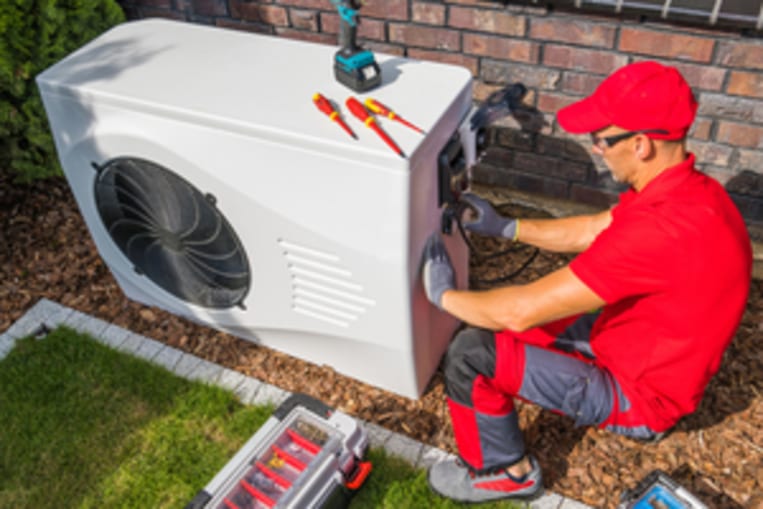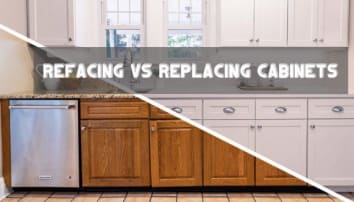
BBB Central New England: How to choose the best installer for your heat pump or mini split system

(getty)
What are heat pump / mini-split systems?
A heat pump is: Heat pumps run on electricity and refrigerant, much like a traditional HVAC cooling system, but the process is reversed, thereby creating heat in addition to cool. These systems routinely heat 3X more efficiently than traditional oil systems and are ⅔ more efficient than a window AC, creating a return on investment in all seasons.
A mini-split system is a ductless type of heat pump. A ductless heating and cooling system that is powered by electricity. The system is designed to provide an efficient and environmentally friendly way to regulate temperature in specific areas of a building. Unlike traditional HVAC systems, mini-splits don’t require ductwork, which makes them an ideal solution for homes without existing ducts or for those looking to add heating or cooling to individual rooms. Additionally, mini-splits release upwards of 3.6x fewer greenhouse gases than traditional HVAC Systems, making them the environmentally conscious choice.
These systems consist of two main components: an outdoor unit (compressor) and one or more indoor units (air handlers or mini splits). The indoor units are mounted on the wall or ceiling of the space and are connected to the outdoor unit using small refrigerant lines and a power line. Given their energy efficiency and ability to control temperatures in individual rooms, mini-splits are becoming increasingly popular in both residential and commercial settings.
The indoor units are discrete, and some models can also act as picture frames to minimize their appearance. Additionally, both the indoor and outdoor units come in a variety of neutral colors, allowing them to blend seamlessly into their surroundings.
Both the Commonwealth of Massachusetts and the Federal government have provided extensive resources to subsidize the cost of installation. For home installations, Massachusetts offers up to $10,000 in direct rebates, while the Federal government offers up to an additional $2000 in Inflation Reduction Act credit to your tax return.
Why you need a professional mini-split installer
Choosing the right installer for your heat pump heating and cooling system is the most important decision you'll make on your mini split or ducted heat pump installation project. No matter how advanced your equipment may be, selecting an expert mini-split installer ensures that your system is correctly installed and functioning properly for years to come.
Proper installation is crucial to the efficiency, longevity, and performance of your mini-split system. An improper installation can lead to reduced energy efficiency, poor airflow, or even system breakdowns. A proper installation brings the following benefits:
- Correct sizing: A proper installer will ensure that the mini-split system is the right size for your space. An undersized unit will struggle to heat or cool effectively, while an oversized system can result in inefficient operation and higher energy costs.
- Proper placement: The location of both the indoor and outdoor units is vital for optimal performance. A trained technician will know the best places to install these units to ensure good airflow and minimal noise.
- Compliance with codes: Professionals are knowledgeable about local building codes and regulations. They’ll ensure that your system meets all the necessary safety standards and requirements.
- Warranty protection: Many mini-split manufacturers require professional installation for warranty coverage. Most major brands are offering 10-12 year manufacturer warranties.
- Troubleshooting and setup: An expert installer will calibrate your system correctly and troubleshoot any issues that may arise during installation. They’ll also provide you with information on how to maintain your system properly, along with tips on how to effectively utilize the temperature controls to minimize costs.
How to pick the best mini split installer
Selecting a reliable, experienced, and certified installer is key to ensuring a successful mini-split installation. Here are some factors to consider when choosing the best installer for your needs:
1. Experience and reputation
Experience is the single most vital factor to look for when choosing your installer. Look specifically for an installer who has a proven track record in installing mini-split systems. They should know how to optimize settings for different seasons, offer energy-saving tips, and ensure that your system is working at peak efficiency. As mini-split installations can be more complex than traditional HVAC systems, it's crucial to choose someone familiar with your unique needs.
You can assess an installer’s reputation by reading online reviews, asking for references, or checking with the Better Business Bureau (BBB). If any of your family or friends have had a satisfactory installation recently, check to see if the installer gives a referral discount!
2. Review quotes
Always closely review quotes provided by installers. These quotes should include a breakdown of the costs, including labor, equipment, and any additional materials, along with an estimate on how long the installation would take. A reputable installer will offer clear and transparent pricing with no surprises. Be wary of unusually low quotes, as they may indicate subpar work or hidden fees.
3. Consider the system’s warranty and any maintenance
A good installer will offer ongoing support and maintenance options to ensure that your mini-split system continues to operate smoothly after installation. In addition to manufacturers’ warranties, some installers offer warranties on their workmanship. Be sure to ask about the length and coverage of any warranties or maintenance services they offer, and check if they include a 100% satisfaction guarantee for their services.
Red flags to watch out for
While most installers will be professional and thorough, there are a few red flags to be aware of:
- Unlicensed or uninsured installers: This can lead to poor work quality and legal issues such as fines or mandatory, nonrefundable deinstallation of equipment. Check to see if your installer has an EPA Clean Air Section 608 HVAC Technician Certification and has secured the necessary permits for your installation. If there is any doubt about the permits, check with your local government’s planning and/or building department.
- No references or reviews: Indicative of a lack of experience, if you don’t know what they’ve done, you don’t know what you’re going to get!
- Lack of transparency/pushy sales tactics: If the installer is vague about pricing, the installation process, or what the job entails, look elsewhere. A reputable installer should be able to communicate every aspect of the job to you before signing, and will never pressure you to make a decision quickly.
Final thoughts
A mini-split system is an excellent investment in home comfort, but choosing the right installer is key to ensuring that your installation is hassle-free. By selecting a licensed, experienced, and reputable installer, you can ensure your system is properly installed and performs well for years, providing both comfort and energy savings. Take your time, ask questions, and choose a professional who can guide you through the installation process and provide ongoing support.
For more information
Learn more about BBB tips and scams. Visit BBB.org/scamtracker to report a scam.
See BBB's HVAC HQ for more tips.
Find heating and air conditioning businesses near you.
This article was written in collaboration with Metrowest Mini Splits and the BBB of Central New England
Always look for businesses that adhere to the BBB Standards for Trust. Read more about BBB's Accreditation Standards.
Related News
Still Need Assistance?
Contact Your Local BBB
Your local Better Business Bureau can assist you with finding businesses you can trust. Start With Trust®.
Additional Resources
Let BBB help you resolve problems with a business
Research and report on scams and fraud using BBB Scam Tracker
Learn more about the value of BBB Accreditation


